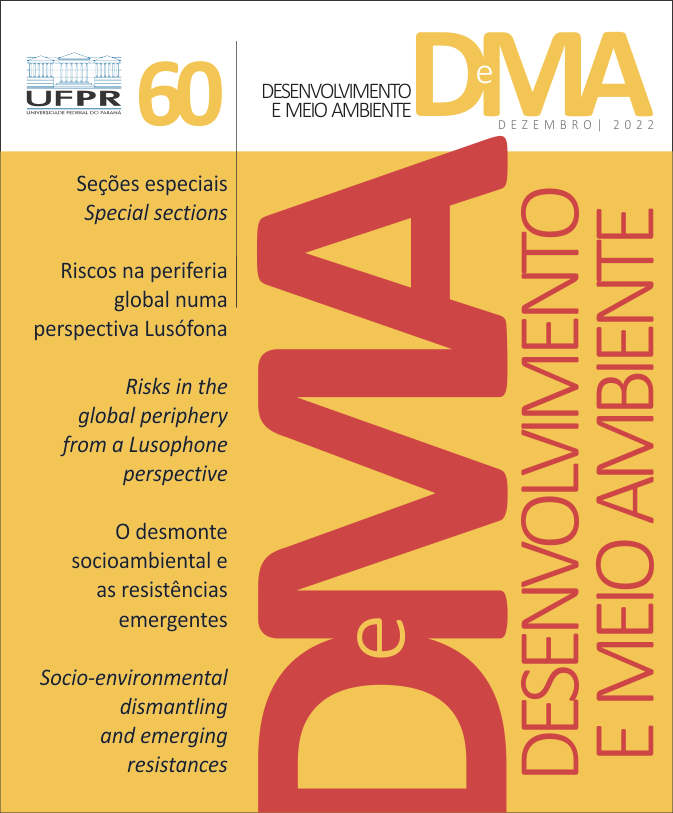Perspectives for sustainable consumption: An exploratory study of the discourses and practices of Cordoba's citizens (Argentina)
DOI:
https://doi.org/10.5380/dma.v60i0.78529Palavras-chave:
sustainable consumption, food, housing, mobility, city of Córdoba, ArgentinaResumo
This paper addresses some of the perceptions, beliefs, and experiences related to sustainable consumption habits of citizens of Córdoba (Argentina). We focus on three main areas of consumption: food, housing, and mobility. The study examines the discourses of 59 citizens in seven focus groups with seven to nine persons each. Six groups combine age ranges (18-29, 30-49, and 50-70 years old), socioeconomic status (high-medium and low-medium), and gender. A seventh group is composed of citizens who participate actively in environmental organisations with a mix of ages, SES and genders. We conduct a content analysis using ATLAS.ti software. The results of this study indicate that the participants in general have difficulty spontaneously associating their consumption practices with environmental problems. Three results are prominent: First, the role of meat consumption for sustainability is almost unnoticed by most participants; this is noteworthy given the overconsumption of meat in Argentina. Second, we find little knowledge about water-saving appliances while a high rate of individual water consumption in Córdoba is in fact alarming. Third, respondents do not consider environmental aspects when choosing their everyday modes of mobility. Based on these initial findings, we sketch the research and data needed to advance knowledge of sustainable consumption in Argentina and Latin America from a psychological and other behavioural science perspectives, as well as implications for policies aiming to address environmental degradation.
Publicado
Como Citar
Edição
Seção
Licença
Os Direitos Autorais sobre trabalhos publicados nesta revista são do autor, com direitos de primeira publicação para a revista. O conteúdo dos trabalhos publicados é de inteira responsabilidade dos autores. A DMA é um periódico de acesso aberto (open access), e adota a licença Creative Commons Atribuição 4.0 Não Adaptada (CC-BY), desde janeiro de 2023. Portanto, ao serem publicados por esta Revista, os artigos são de livre uso para compartilhar (copiar e redistribuir o material em qualquer suporte ou formato para qualquer fim, mesmo que comercial) e adaptar (remixar, transformar, e criar a partir do material para qualquer fim, mesmo que comercial). É preciso dar o crédito apropriado, prover um link para a licença e indicar se mudanças foram feitas.
Os conteúdos publicados pela DMA do v. 53 de 2020 ao v. 60 de 2022 são protegidos pela licença Creative Commons Atribuição – Não Comercial – Sem Derivações 4.0 Internacional.
A DMA é uma revista de acesso aberto desde a sua criação, entretanto, do v.1 de 2000 ao v. 52 de 2019, o periódico não adotava uma licença Creative Commons e, portanto, o tipo de licença não é indicado na página inicial dos artigos.




